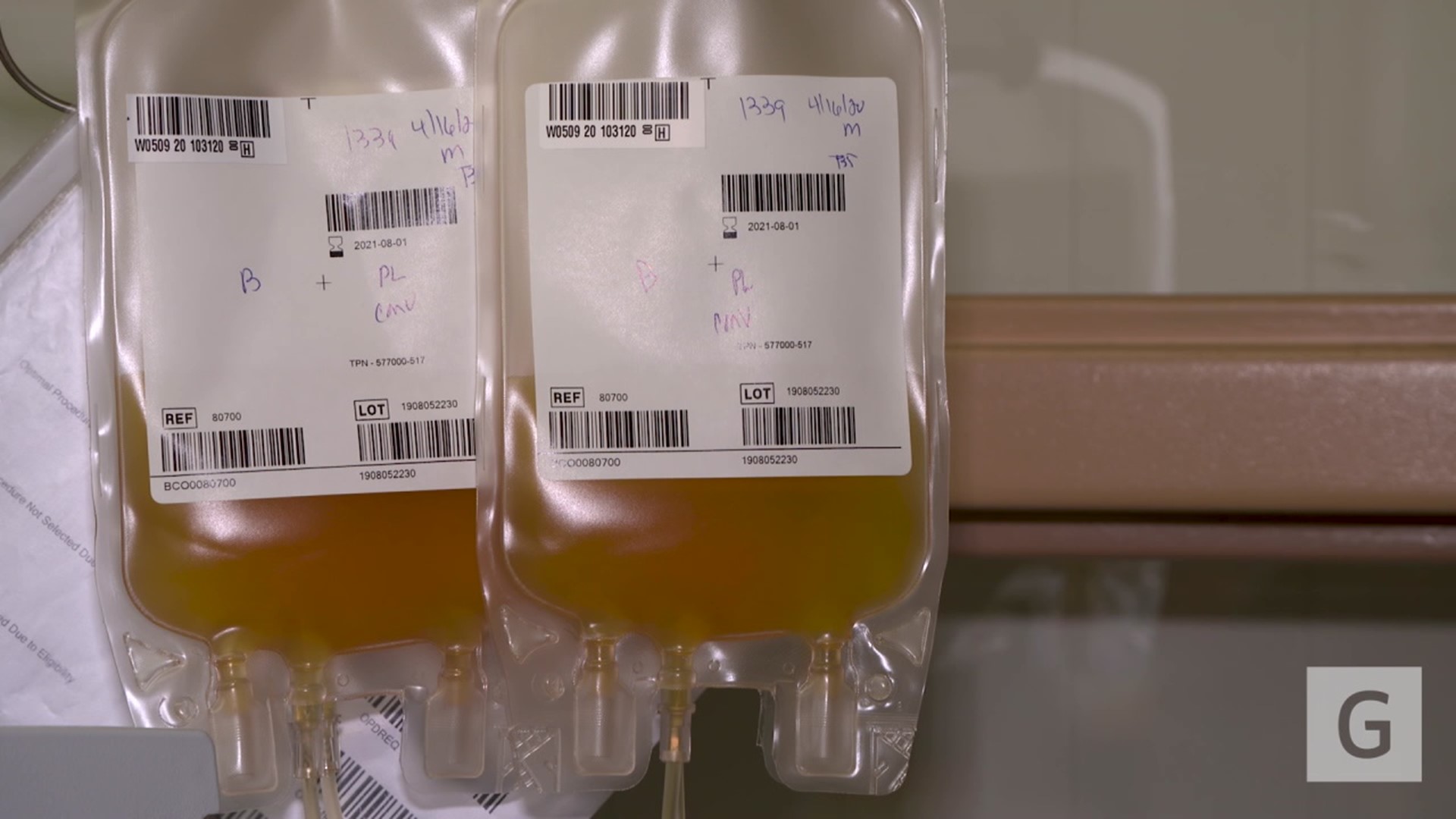TAYLOR, Pa. — It's a fancy phrase, but the idea is simple: convalescent plasma allows people who have recovered from COVID-19 to transfer the antibodies they developed to fight off the virus, to an infected patient.
Doctors have already been using plasma to treat COVID-19 patients for months now, but the FDA emergency use authorization just makes it easier and more accessible.
It does not mean it's FDA approved, however.
What it means is the FDA feels that it is likely that the benefits outweigh the risks of using a given therapy," said Dr. Gustaaf de Ridder, director or transfusion services for Geisinger.
Dr. de Ridder says some studies show that convalescent plasma can shorten or lessen the severity of the disease; it's not known yet whether patients will develop immunity after receiving the plasma, but experts are hopeful.
Dr. de Ridder says it's promising.
"Our strongest data indicate that it's a safe therapy. For the most part, the adverse events have been mild, very few adverse events reported in tens of thousands of patients."
Anyone with either a positive test result or a positive antibody test can donate their plasma at a blood donation center like the American Red Cross, or a plasma donation center like CSL Plasma in Taylor or Wilkes-Barre.
You need to wait at least 14 days since your last symptom before donating your plasma, and then, the sooner the better.
"Antibodies can go down over time but it's highly variable, so it's never really too late. We can check it out. But the closer you are to the to your recent infection, the more likely it is that you'll have a higher level antibody," said Dr. Toby Simon, Senior Medical Director for CSL Plasma.
Dr. Simon says there's always a need for plasma, including for people with diseases other than COVID-19, such as blood diseases, or people with immunodeficiency.
So even if you haven't had coronavirus, you can always consider donating.

